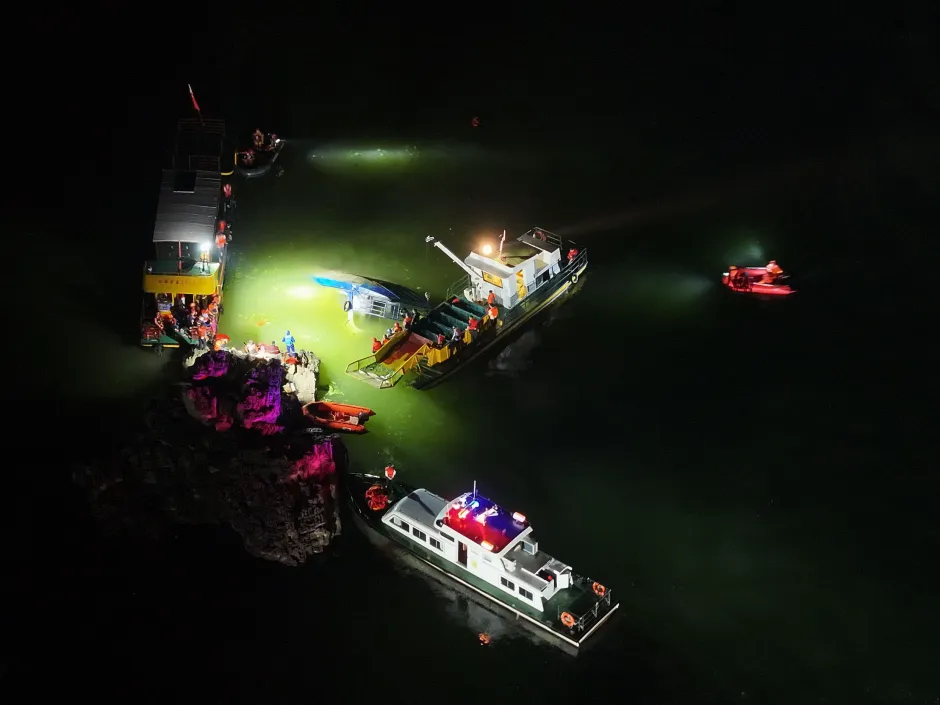
5 May, China
A sudden storm on China’s Wu River capsized four tourist boats, killing 9 and injuring dozens.
On Sunday, May 4, 2025, a disaster happened in Qianxi City, Guizhou Province, in southwestern China, when four tourist boats capsized during a surprise storm on the Wu River. The storm, which was accompanied by heavy rain and hail, swept more than 80 people into the river.
To date, nine people have been confirmed dead, and one is still missing. Around 70 others were hospitalized after the incident.
About 84 individuals were believed to have drowned in the water, of whom four were rescued, but did not need to be taken to the hospital. An initial probe has established that the vessels were not overloaded with passengers.
Emergency workers were quickly deployed to the scene, beginning rescue and recovery efforts throughout the night. Helicopters, divers, and dozens of ambulances were dispatched. Survivors are being treated at nearby hospitals, most in shock, with hypothermia, and with injuries sustained that they received in the panic.
Chinese President Xi Jinping ordered “all-out efforts” for search and rescue efforts. Xi also sent his Vice Premier Zhang Guoqing to the scene of the crash to oversee the rescue mission.
China’s supreme leader, Xi, also ” called for improving safety measures in tourist locations” and other large public areas
This accident highlights the significance of having tight safety measures and being ready, especially in areas that experience abrupt weather shifts.
The accident occurred during China’s holiday season, when of tourists were traveling, with domestic tourist reaching record levels. It has brought to the forefront heated debate about weather readiness, live warning systems, and sufficient safety training among tour operators.
In the country’s state of shock, messages of condolences and tributes flowed in from throughout China. Online, thousands were mourning and outraged, speculating about whether the accident the have been prevented.
Investigations are underway, with authorities vowing openness and accountability. In the meantime, the Wu River is eerily quiet, a place of natural beauty and poignant memory, now commemorated by one of China’s deadliest recent boating disasters




